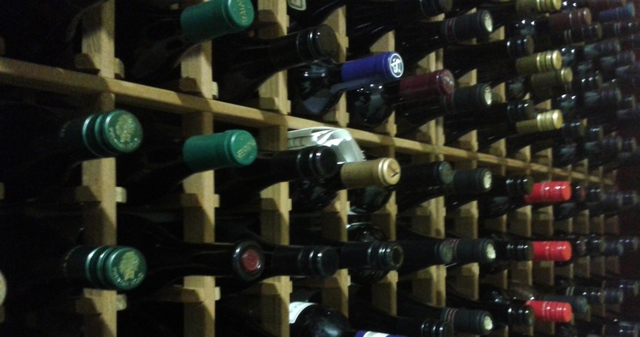New evidence supports the cellaring of wine at constant cool temperatures
Recently a group of researchers in Italy reported on some interesting work which quantifies the effect of storage conditions on the quality of wine. This study is the first time that a comprehensive assessment has been undertaken on changes of the chemical components in wine over a two year period, with six monthly sampling over this period.
The wines included in the study were Sangiovese from the Tuscany area which included a range of selected vineyards. Around 80kg of grapes from each vineyard were vinified at an experimental winery under controlled conditions. The wines were stored in dark glass bottles and purged with nitrogen gas. Each bottle was closed with a cork stopper. To test the effect of storage conditions, two bottles of each wine were stored at 4°C and the remaining bottles were divided into two lots and stored under standard house storage conditions (temperature variation 20 – 27 °C) and in a purpose developed wine cellar (15-17 °C).
The conclusions from the study were that wines stored in the cellar changed little after the 2 years storage in the wine cellar while wines stored under typical domestic house conditions developed approximately 4 times faster, reaching a chemical composition similar to wines stored in the cellar for 2 years after just 6 months. Furthermore, the aging of wines in domestic conditions induced an accelerated decrease of wine pigments, while specifically promoting the formation of new compounds derived from pigment causing components. These can have a negative influence on the wine quality. The study also showed that wine tannins could react with bisulphite, a wine preservative, which lowered the amount of both free and total SO2 in wines stored under domestic conditions. This reduced the effectiveness of the preservative and sped up aging processes.
This study now provides significant evidence of the advantages of the proper cellaring of wine as not only does it age slower when stored at lower temperatures, but it also prevents the formation of different flavour components forming which detract from the overall quality of the wine.
The research was published in Metabolomics, vol. 10, No. 2 April 2014 by P Arapitsas, G. Speri, A Angeli, D. Perenzoni and F. Mattivi.
Posted: Wednesday 27 August 2014

